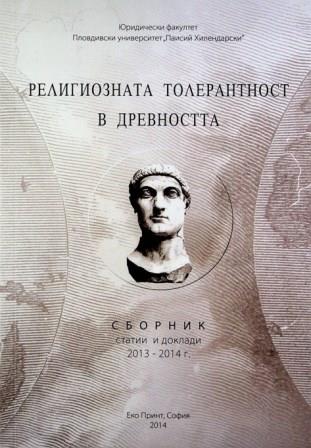Религиозната толерантност във фамилното законодателство на император Константин Велики
Religious Tolerance in the Family Law Legislaton of the Emperor Constantine
Legitimatio
Author(s): Marija Ignjatović, Goce Naumovski
Subject(s): Law, Constitution, Jurisprudence, Canon Law / Church Law, Roman law
Published by: Пловдивски университет »Паисий Хилендарски«
Keywords: religious tolerance; law legislation; emperor Constantine
Summary/Abstract: After the acceptance of Christianity as an official religion in 313 by the Edict of Milan Constantine the Great administered a series of important reforms and thus continuing what Diocletian had started. One of the numerous reforms was the Act called legitimation according to which even children born out of wedlock were considered legitimate (liberinaturales). There were three cases of legitimation: legitimatio per subsequent smatrimonium (the legitimation of children after the subsequent marriage), legitimatio per oblationem curiae (instructing a son to become a Decurion) and legitimatio per rescriptumprincipis (in the cases where there was impossible to form the subsequent marriage because of the absence, death, unworthiness etc. of the mother concubine). Although legitimatio appeared when Christianity was introduced thus influencing its administration, this institution continued to develop in the constitutions of the following emperors.
Book: Религиозната толерантност в древността : Сборник статии и доклади 2013-2014
- Page Range: 80-89
- Page Count: 10
- Publication Year: 2014
- Language: Bulgarian
- Content File-PDF

